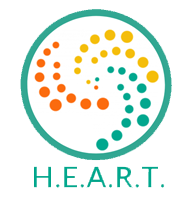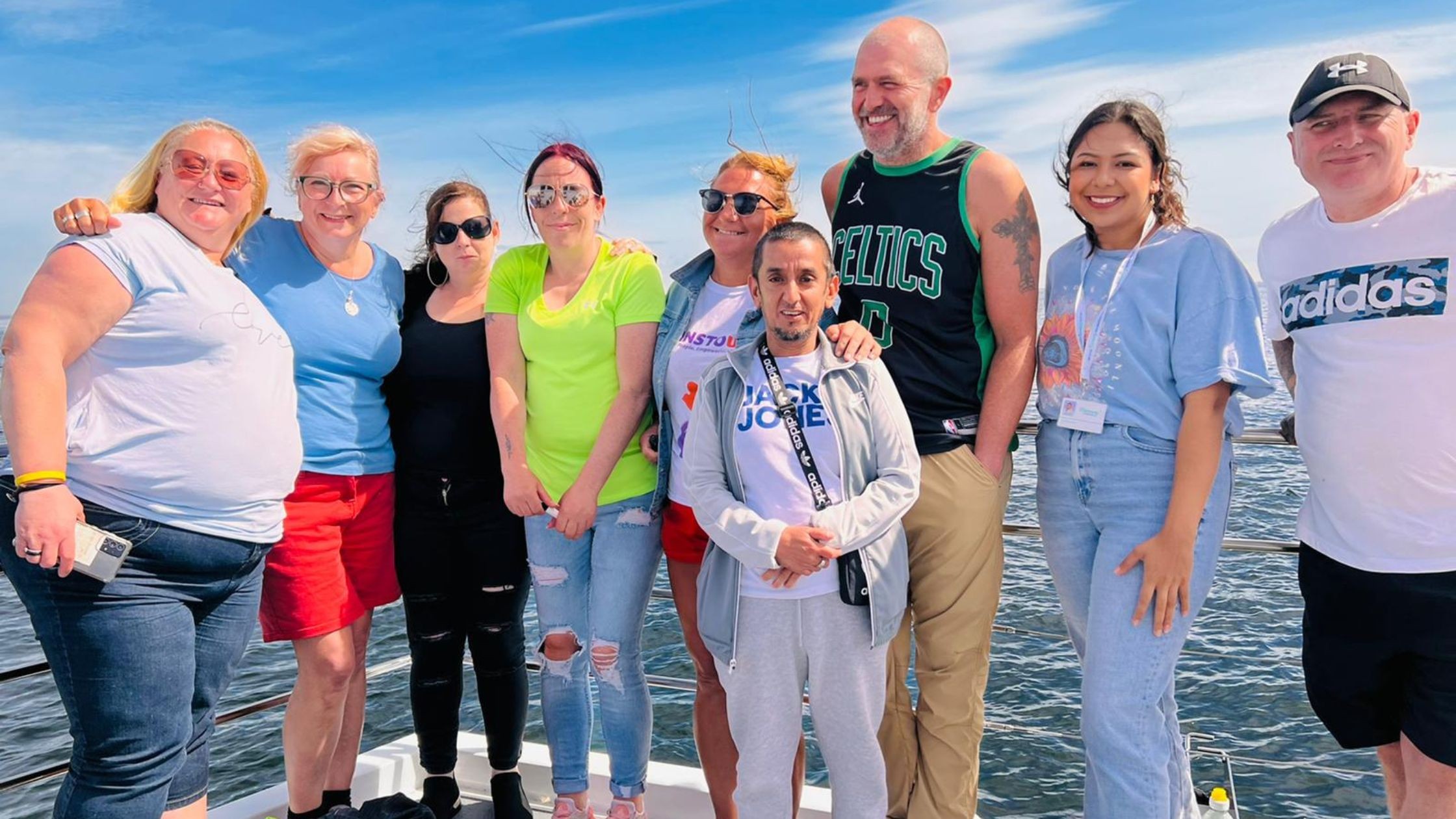From Texas to Teesside: Being Part of Recovery in Middlesbrough
15 August, 2022
This summer, Counselling and Addiction Recovery Sciences Majors, Stephanie and AD, joined Recovery Connections for a 6 week internship. Travelling all the way from Texas Tech University, to Teesside, in this blog the students reflect on their experiences working in rehab and community.
Recovery Connections is lucky enough to have friends and supporters not only in the North East of England, but all over the world. And every summer (global pandemics permitting) we welcome students who have come all the way from Texas Tech, Lubbock.
This summer, it was Stephanie Sulewski and Andrianna (AD) Pardo who made the long trip east to spend six weeks working with our residential rehabilitation, and community teams in Middlesbrough. Both majoring in Counselling and Addiction Recovery Sciences, and both working on an internship basis, here is what they had to say about the experience.
What did you hope to gain from your time here?
Stephanie:
I wanted to learn about the culture over here, and a lot of the harm reduction model. In the United States we don’t really have harm reduction, there’s really no middle ground. The biggest reason I wanted to come was to see how recovery is in the UK, as well as see the treatment options for people.
AD:
I was very interested in learning more about the culture. You think you have an idea of what it’s like, right up until you’re actually here. So that was really cool, getting to see how life is, and recovery, and the whole system with recovery and education.
And how have those hopes transpired in over the last six weeks?
Stephanie:
I got to see a lot of the prehab over here - it’s big! In the US we catch a lot of people at the end of treatment, so as they’re coming into recovery there’s not a lot of work. And so to see how you all do that here, and do it well, was really cool.
It lets me know that not all people have to go to rehab to recover. People can recover in the community, and people here are really immersed in it, and recovery, and they do it well.
AD:
Seeing how different the recovery world over here is, has been eye-opening for me. I really haven’t been in this type of setting at all before, so doing that harm reduction stuff and seeing what people are actually doing out there, to see where people are coming from, and the things they’ve done to get here in the centre - then seeing them work through all of that in the rehab was really inspiring. And it’s something we’ll probably never see in the US.
How do you think this experience will influence your work?
Stephanie:
One of the biggest things that will influence me is the different pathways and knowing that there are different avenues to recover. There’s the harm reduction, prehab and the community, but also just nurturing people. Six months in-patient [rehab] was an eye-opener for us, because it’s 30 days back in the US commonly.
Another big thing is even God and AA and how that was different here, and just knowing that NA is big here, whereas back home it’s not. And so seeing people recover, in other ways outside of AA, is probably what I will take with me. We do offer SMART [Recovery] at Texas Tech, but it’s very small and so maybe I might get into help with that more now, because I’ve seen it work over here and it’s really neat.
AD:
I think it’ll definitely make me more grateful for the system that we do have. Because over here people are still stigmatising addiction, so it makes me want to go back home and take all the experiences I’ve learned from here and use it to help me be a better professional.
What have your standout moments been from your time here?
Stephanie:
For me it was during a 12 Step lesson, when I was over at the rehab and I was teaching step 3. It’s about God and that’s something that’s difficult over here, but my favourite moment was watching the lights come on in a couple of the people, and seeing them get it. Just seeing that shift in them was really cool. Then watching them go through the process over a couple of months and seeing it click. It was like the gears just turned and I got to see it happen.
AD:
My favourite moment was when we went to the 75th AA Annual Convention. We went with the people from the rehab and that was their first experience too, being sober and going back out into the world and seeing a lot of people together, and seeing them experience that.
What would you say to other students considering a similar, voluntary role?
Stephanie:
For me it would be to ask a lot of questions, jump in, and don’t be afraid. If I were to sit down with someone who wanted to come over here I would tell them to take people aside and ask them questions and pick their brains. Like Dot, she’s very resourceful and has a lot of information and what she’s done here is incredible.
AD:
I’d say definitely do it, especially if you want to work with people in mental health, or any of those types of fields. It’s important to understand addiction, because it’s something that a lot of people still don't talk about. But you can never learn enough. So that’s my number one thing - I can never stop learning. So just go out there and learn. You can take anything from any conversation.
What are your most and least favourite new food or drink you’ve had in the UK?
Stephanie:
So my favourite is the parmo, I loved the chicken parmo. The weirdest, strangest food I had was haggis, in Scotland. I did not know that it was sheep lungs, so I ate it, but then when we looked it up I was a little ill because I couldn’t believe that I had eaten it. But it was actually really good.
AD:
[Worst] Black Pudding! I didn’t eat it, but I saw it being served and everyone told me about it. Everyone says it was really good but I didn’t want to try it. And my favourite was the salmon fishcakes. I’ve never had a fishcake before and that was really good.
And what’s the first thing you’ll do when you get home?
Both: “Eat Mexican food!”
And what’s next, after that?
Stephanie:
From a professional sense I think I want to work with the homeless now. Being here and working with the harm-min team and out in the homeless team, there’s a lot to do. We have a chair in the homeless consortium back at home in the salvation army and I think I’ll get more involved in our chair, within our student organisation.
AD:
I’m interviewing for a job at a sober house for women. It’s going to be almost the same job as what Recovery Coaches do here, and that’s what I’m going to be going back home to do. So I’m going to take that experience here and just continue learning.
To find out more about the work Recovery Connections do in Middlesbrough, visit the charity online, here: https://www.recoveryconnections.org.uk/building-recovery-in-middlesbrough/






